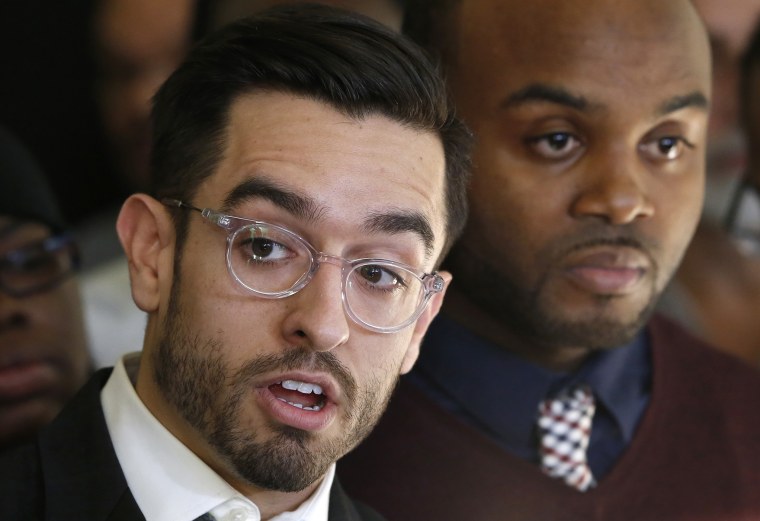A Cook County judge has ordered the Chicago Police Department to release dashcam video of a white police officer shooting and killing a black teenager on the city’s South Side last year.
Activists have fought for the release of the video for months as the city refused, citing an ongoing investigation into the case.
The video reportedly shows 17-year-old Laquan McDonald being shot 16 times by Officer Jason Van Dyke, including multiple shots fired after McDonald had been knocked to the ground.
On Thursday, in a packed city courtroom, Judge Franklin Valderrama ordered the release of the video by next week.
Within hours of the ruling, city officials first requested a stay of the decision pending an appeal, then reversed course, saying it would release the video before Thanksgiving.
The potentially inflammatory video, showing the teen’s violent death, comes as protesters in cities and on college campuses across the country continue to demand an end to racially biased policies and policing.
EARLIER: Police refuse to release video of shooting deaths, sparking protests
The McDonald case has been rife with controversy from the outset but has gotten little national attention. McDonald was shot and killed on Oct. 20, 2014, just a week after Walter Scott, an unarmed black man, was fatally shot in the back by a white police officer in South Carolina. It also came as tensions were still high in Ferguson, Missouri, where in August 2014 a white police officer shot and killed Michael Brown, another unarmed black man.
Police and witness statements have been at odds in the McDonald case. Police said McDonald was armed with a knife, refused to drop it and was shot after he lunged at officers with it. Witnesses have said he was shot with is hands behind his back.
In April the city settled with McDonald’s family for $5 million.
For months the city and police department had dug in their heels, refusing the release of the video. But Chicago Mayor Rahm Emanuel struck a different tone on Thursday following the judge’s order.
"Police officers are entrusted to uphold the law, and to provide safety to our residents," the Mayor said in a written statement. "In this case unfortunately, it appears an officer violated that trust at every level."
Meanwhile, Officer Dyke remains on paid desk duty pending the outcome of the investigations into the shooting.
Daniel Herbert, Dyke’s lawyer, told The Chicago Tribune the video is indeed disturbing but cautioned that it does not offer a full picture of what happened the night of the shooting.
"The video is graphic, disturbing and difficult to watch, as any video of a man being shot to death would be," Herbert said. "It's impossible from viewing the video to determine exactly what my client was experiencing at the time in which he fired the shots. ... It's not showing from his eyes, which is an important distinction."
Police were initially called that night on reports of a man armed with a knife behaving erratically. According to the Cook County Medical Examiner’s office, McDonald had PCP in his system at the time he was killed.
“He was not threatening anyone,” Michael D. Robbins, a lawyer for McDonald’s family told The New York Times. “He was walking away.”
According to Robbins, McDonald’s family has been too distraught to view the video themselves.
Camiella Williams, a community activist who has worked closely with McDonald’s family, said they are struggling under the weight of his death. The upcoming holidays have made their burden even heavier, Williams said in a phone interview.
“It’s the holiday season, depression is kicking in. A mother’s son isn’t there. He can’t sit at the table no more,” Williams said. “And you don’t know what going to happen next. No police officers have been charged with murder so you’re scared for that. And then nobody from the city of Chicago, elected officials or even pastors, want to sit down with you because they’re scared to be seen as supporting you. It’s a difficult time.”
In his statement following the judge’s decision Mayor Emanuel said that he would release the video by Wednesday, which he hopes “will provide prosecutors time to expeditiously bring their investigation to a conclusion so Chicago can begin to heal.”
